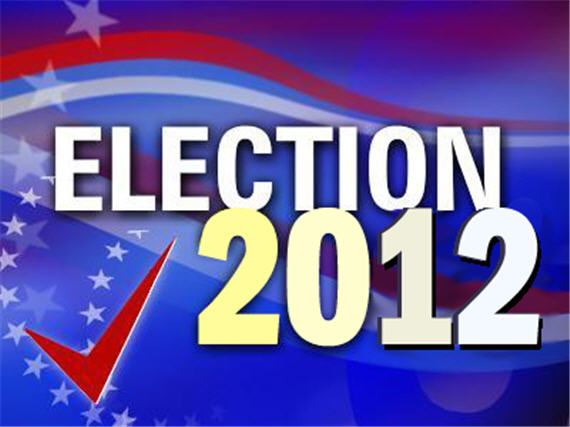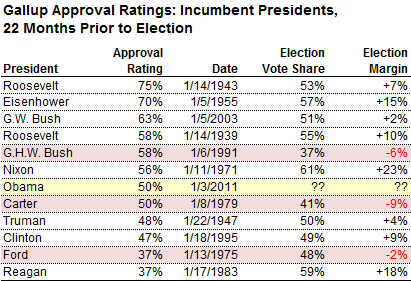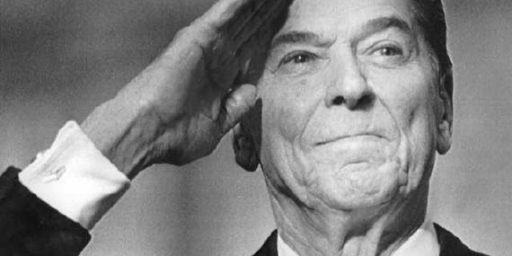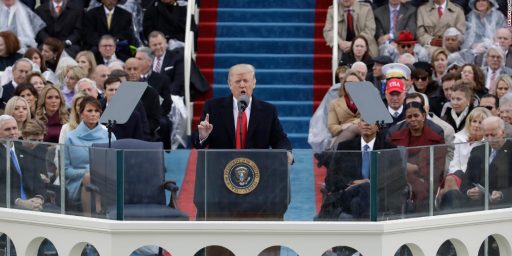Mid-Term Job Approval & Election Results
Honest pundits will tell you that it's simply too early to make useful predictions about the 2012 elections.
Nate Silver takes a look at the correlation, if any, between Presidential job approval at the halfway mark and the results of the re-elect two years down the road:
Historically, there has been almost no relationship between a President’s approval rating following the midterms and how he eventually fared at the next presidential election. I’ve alluded to this in the past, but the data illustrate the point a little bit more forcefully.
Silver provides this chart which shows the mid-term approval ratings (as measured by the Gallup poll) and the election results for every president since FDR:
At the moment, Obama is out-performing President’s such as Truman, Clinton, and Reagan who were re-elected, as well as Ford and Carter, who were not, however, as Silver notes this doesn’t necessarily mean anything:
If we used this data to predict what a president’s fate would eventually be, our “model” would show that a president with a 35 percent approval rating at this point in time would be expected to win 49.8 percent of the vote, whereas one with a 65 percent approval rating would get 51.7 percent of the vote. In other words, it makes almost no difference, and the margins of error on the forecasts would overwhelm any insight they might provide. It’s just too early.
This is not to say that you should pay no attention at all to presidential approval numbers. It may be that the true relationship between these variables is modestly stronger than this, and that we’ve been a bit unlucky that it hasn’t done a good job of presenting itself. We have only 11 data points to look at, and when you have that few, they aren’t always inclined to be cooperative.
To the extent that changes in Mr. Obama’s approval rating perceive clues about how the public is apportioning credit or blame for the performance of the economy, or how it is refereeing the fights between Mr. Obama and the Republicans in Congress, they might theoretically be interesting — but such relationships are usually difficult to tease out in practice.
Instead of paying attention to job approval numbers for the time being, it would be better to look at the economic fundamentals. Because, if the economy starts to improve, then the President’s job approval is bound to benefit from it.
UPDATE (James Joyner): I was going to post on this but Doug beat me to it. So I’ll just add my two cents worth here.
The two most popular presidents at midterm, FDR and Ike, indeed rolled on to re-election. But the third most popular, GHW Bush, got trounced. And the least popular, Reagan, went on to win in a landslide.
Indeed, if win omit Obama from the data (since we don’t yet know the outcome of his reelection bid) the thing that most jumps out at me from the chart is that only 3 of the 11 presidents went on to not win re-election! And one of those (Ford) was never elected in the first place, pardoned the most unpopular president ever (Nixon), presided over a horrendous economy, and damn near won anyway.







